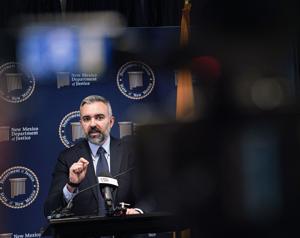Seventy-two countries have signed a new treaty established by the United Nations, aimed at enhancing global cooperation in combating cybercrime. The United Nations Convention against Cybercrime, adopted by the UN General Assembly in July 2024, seeks to standardize legal frameworks for investigating and prosecuting cyber-related offenses, including ransomware attacks, online fraud, and child exploitation.
The treaty addresses a significant challenge faced by nations: the disparity in legal and cooperative frameworks that often complicate the investigation of cybercrimes. Cyberattacks frequently originate in one country, impact victims in another, and involve electronic evidence stored elsewhere. By establishing common legal definitions and procedures for digital evidence collection, the treaty aims to close these gaps and improve cross-border data sharing.
Key Provisions and International Cooperation
One of the main objectives of the treaty is to mandate that each signatory nation criminalize core cyber offenses within its national laws. Additionally, it creates mechanisms for international cooperation, including extradition of cybercriminals. These measures are intended to balance enforcement with protections for privacy, freedom of expression, and due process.
The signing countries include notable nations such as Australia and Spain, as well as various members of the League of Arab States, Interpol, and others. While the full list of signatories is not publicly available, supporters also include countries like Iran, Peru, China, Brazil, and South Africa.
Concerns Over Civil Liberties
Despite the treaty’s intentions, it has faced criticism from various organizations and experts. Groups such as the Electronic Frontier Foundation, Human Rights Watch, and Privacy International have raised alarms about potential implications for individual rights. They argue that the treaty could lead to broad electronic surveillance, undermining fundamental human rights and due process protections.
“It’s just smoke and mirrors,” stated a group of over 500 cryptography scientists and researchers, expressing concerns about the treaty’s effectiveness in safeguarding privacy.
As signatories move forward, they will need to enact national legislation to implement the treaty’s provisions effectively. This process will be essential to ensure that the treaty’s ambitious goals can be realized without compromising the rights of individuals.
The signing of the United Nations Convention against Cybercrime marks a significant step towards international collaboration in the digital realm. However, the balance between effective law enforcement and the protection of civil liberties will remain a critical area of scrutiny as countries begin to integrate these new obligations into their legal systems.






































































